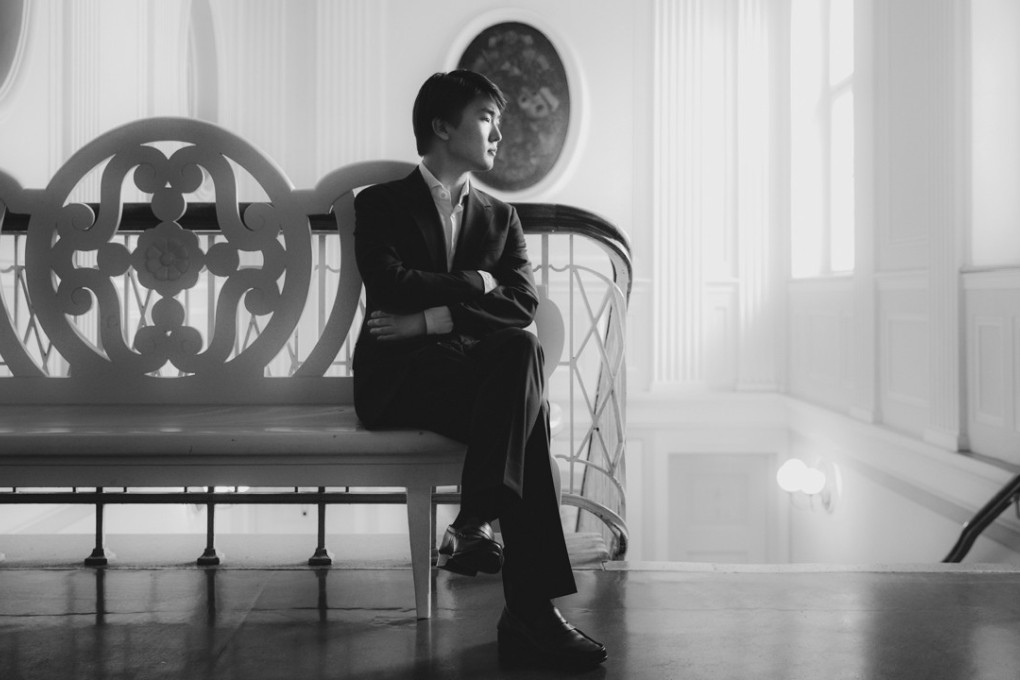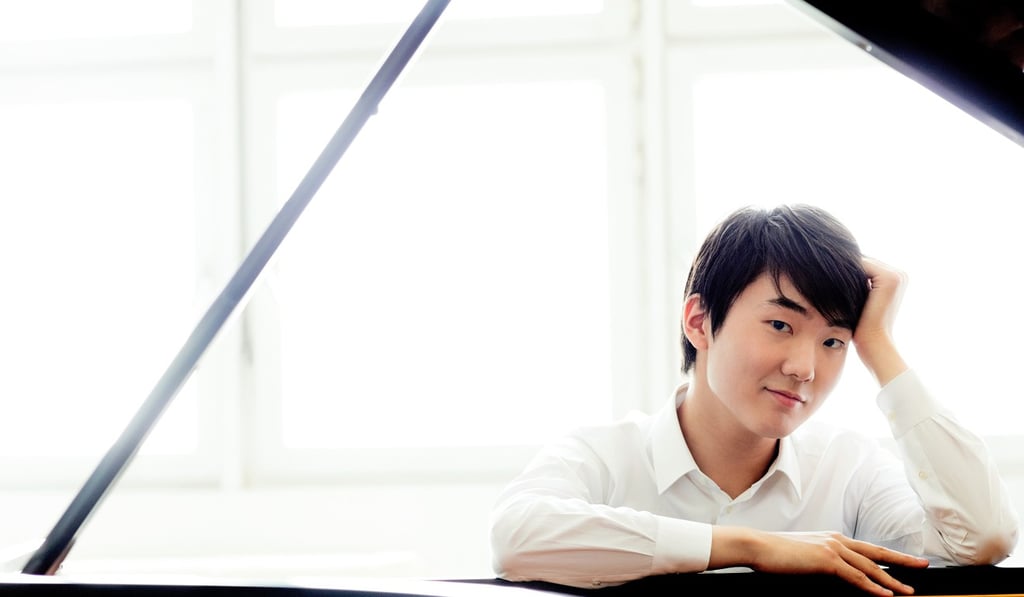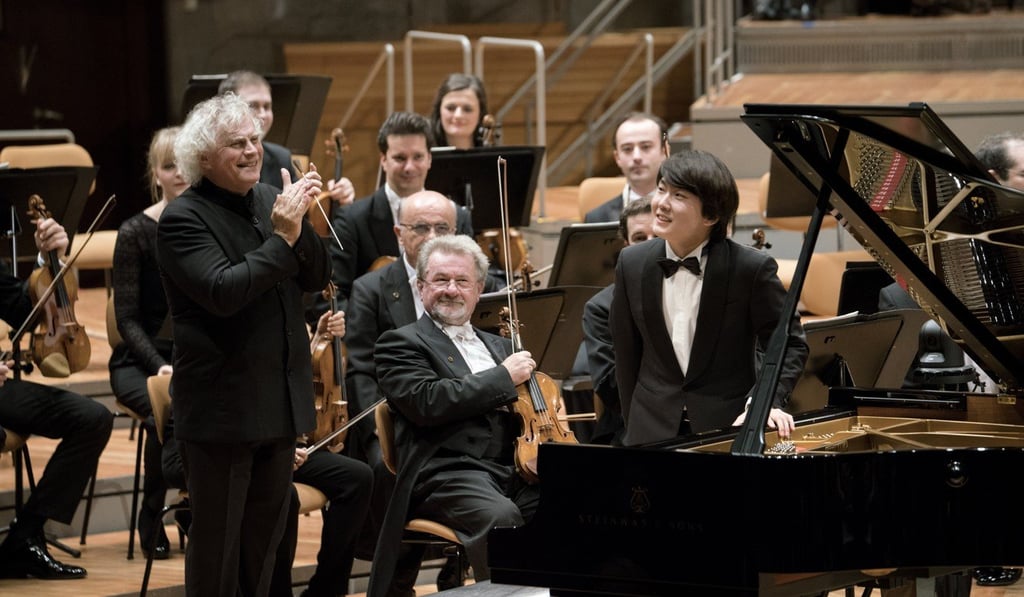Trailblazing Korean pianist returns to share his admiration of Beethoven with Hong Kong
- Seong-Jin Cho talks about his early years, the pressure of competing, life as a young professional musician, and why he enjoys playing in London

Seong-Jin Cho is a rising star of classical music. He won the International Chopin Piano Competition in 2015, the first South Korean to do so, at the age of 21. This brought him immediate global attention and soon he was playing in the world’s best concert halls.

Now 24, we talk to him about being a young professional musician and his upcoming performance with Sir Antonio Pappano and the Orchestra dell'Accademia Nazionale di Santa Cecilia - Roma at the Hong Kong Cultural Centre on November 23.
Winning the competition itself doesn’t mean so much to me; playing in London, New York, Paris, Berlin … is much more important.
You started playing music at quite a young age – did you always feel an affinity for music?
I started playing piano at the age of six as a hobby. I began to practise seriously when I was 10. My parents were not musicians, but they listened to classical music a lot, and there were always recordings in our house. So I’ve always felt natural with classical music. I like listening to and playing instruments.
Were you only drawn to the piano?
Actually I also played the violin, for five or six years, as a hobby. But I always felt more comfortable with the piano. I think it was because the violin is played standing up, while the piano is played when you’re sitting down.
As a child I thought the violin was a more difficult instrument to play. But the piano is harder. At 10 or 11 I realised this.

When did you realise you wanted to make music your career?
Right from beginning I wanted to be a professional musician. I went to an art middle school in [South] Korea, where I was surrounded by painters, musicians, and ballet dancers. The artistic environment of the school was inspiring. All the students were always talking about the arts. It was then that I started to dream about becoming a pianist.
I also got a sense of what being a pianist is about. It was competitive. There were 50 of us pianists and we had exams every six months. It was very stressful, but I enjoyed it.
What did it feel like to win the prestigious Chopin competition in 2015?
I was honoured and happy to win the competition.
But I participated in it as I wanted to build my career in Europe, America and in Asia. Winning the competition itself doesn’t mean so much to me; playing in London, New York, Paris, Berlin … this is much more important to me.
And in order to play in these cities, I needed the competition to boost my career.

Competing must be incredibly stressful – how do you handle the pressure?
It’s 100 times more stressful playing in competitions. How did I handle the stress? Well, I would say I couldn’t handle it.
The preliminary round included 80 competitors, and we could only practice two or three hours a day. In the next round there were 40 competitors, so we could practice about four hours a day. In the final round, we could practice all day long but I was ill. It was so cold and I needed to rest.
I was really nervous. I couldn’t remember how I played straight after I performed. I had to look on YouTube to check.
As a child I thought the violin was a more difficult instrument to play. But the piano is harder.
Would you say that the competition was a turning point in your career?
The competition opened the door for me and gave me freedom. After this I signed with Deutsche Grammophon, which is the biggest label in world. My latest, seventh, album has just been released, Mozart Concerto No.20 in D minor, and two sonatas, No.3 in B-flat major, and No.12 in F major, with the London-based Chamber Orchestra of Europe.
I also debuted in London after the competition, with Vladimir Ashkenazy at the Royal Festival Hall.
What do you think about playing in London and the reception you receive there?
London is one of the best audiences in world. I’ve played three or four times there now, and I’ll be back in March next year. I really enjoy playing there. The audience is very serious; they take classical music seriously. They are always supportive and I feel like I can really concentrate on my performance when I play there.
But you live in Berlin now?
Yes. I studied in Paris for five years before I moved to Berlin. I think that Berlin is one of most exciting cities for classical music. There are five really good symphony orchestras, it’s the home of Deutsche Grammophon, and many musicians are living there. Berlin is the centre of classical music, I would say.
What do you think about the classical music scene in Asia, particularly in your home country?
[South] Korea has a bright future because the audience is sophisticated. It’s also young – younger than in Europe. I’m not quite sure how it’s happened, but young people have started to listen to live classical music – this is a good sign for the [South] Korean music scene.
We have good halls and orchestras, and foreign orchestras and musicians come to perform regularly. I think we have a bright future.

You are a young musician with a long career ahead of you – what is it like for young musicians? Do you worry about making a living from classical music?
I, like other young musicians, don’t want to think about the financial situation.
There are so many great pianists at the moment. There is Daniil Trifonov, who is a friend of mine and who will be playing with the Santa Cecilia Orchestra in Hong Kong the day before me (Nov 22), and there is Igor Levit and Benjamin Grosvenor.
If we can get a new audience, build the scene, then we may not have a bad future.
Are you looking forward to being in Hong Kong again, and playing with Sir Antonio Pappano and the Santa Cecilia Orchestra once more?
Yes, very much. I played in Hong Kong first in 2015, before the Chopin competition, and I played last year, Ravel’s Piano Concerto in G major, with the Berlin Philharmonic Orchestra led by Sir Simon Rattle.
I’ve just performed with the Santa Cecilia Orchestra and Maestro Pappano here in [South] Korea, the same Beethoven pieces, and I really enjoyed it.
[South] Korea has a bright future because the audience is sophisticated.
How do you feel about playing Beethoven?
Beethoven is the composer I respect the most. For me, there are two kinds of composer: those who I love, and those I respect and admire. Beethoven is the second type. His 32 sonatas are like the Bible for me.
Piano Concerto No 3, which I will be playing in Hong Kong on November 23, is Beethoven’s only concerto in minor. The others are in major keys. This brings dignity to the piece and it’s dramatic. The second movement is like choral music to me, pure and expressive, and very emotional.